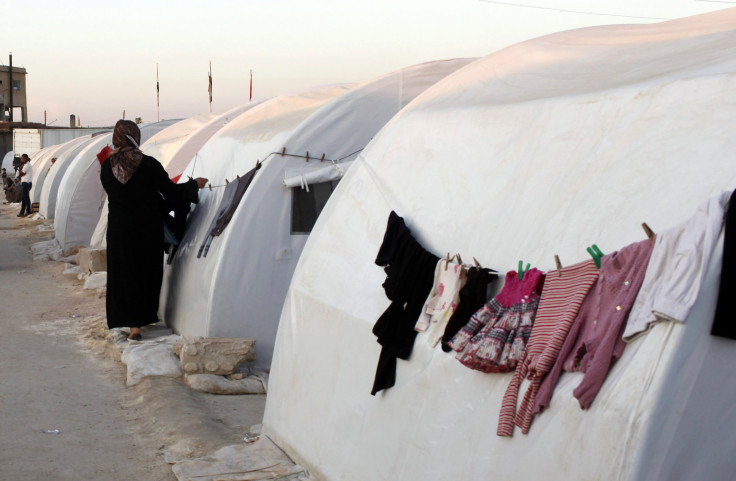Turkey’s Tipping Point: Syrians Stream In As Resources Run Dry

The Syrian refugee situation in southern Turkey has reached a breaking point.
This week, according to Turkish officials, the number of Syrian men, women and children currently taking refuge in Turkish border camps has topped 100,000. That’s not counting those Syrians who are undocumented, or who have been able to find lodging elsewhere in the country.
“The 100,000 figure was truly a threshold for us, but we always said it may exceed 100,000," said Turkish Prime Minister Recep Tayyip Erdogan, according to the Wall Street Journal. "We are now currently working on this issue."
Talk of a threshold has some worrying that Turkey may decide to shut its southern border with war-torn Syria, especially as its resources -- and finances -- run drier by the day.
Though sympathetic to the rebels' cause, Turkey is feeling increasingly strained by its growing Syrian population. Refugee camps are reaching full capacity, and new ones cannot be built fast enough. And now that temperatures are dropping, humanitarian workers and government officials are anxious about their ability to provide extra assistance -- like blankets and heaters -- to the refugees.
Government officials say Turkey has already spent about $220 million to accommodate the rebels.
Turkey is also facing a potential threat to national security, as there are fears that the rebel movement in Syria has been infiltrated by extremists and Islamist militants.
For the past 19 months in Syria, a loosely organized force of rebels has revolted against the regime of President Bashar al-Assad. The bloody battle has cost an estimated 25,000 lives so far. Those seeking to escape the brutal warfare often flee to neighboring countries like Turkey, Jordan and Lebanon. Some Syrian Kurds have also fled to the autonomous Kurdish region of neighboring Iraq.
Because Turkey accounts for the largest part of Syria’s border, that country is now home to a plurality of the approximately 300,000 people who have already fled the country.
In response to an influx of undocumented migrants from Syria, Ankara announced in September that it would clamp down on border security. But all along the border, bands of Syrian rebels have become quite astute at skirting Turkish authority at porous fences and understaffed checkpoints.
As the situation in Syria continues to deteriorate, there is no easy solution for Turkey’s refugee crisis.
Meanwhile, tensions between the Turkish government and the embattled Assad regime have reached unprecedented heights over the past few months. The two administrations, which were once bound by their countries’ strong economic relationship, have been at odds over the Syrian uprising.
The friction today is nearly palpable. Just this summer, Syrian forces shot down a Turkish jet plane that had veered into Syrian airspace; officials promptly apologized. Then, in October, Syrian shells landed in Turkish territory and killed five civilians, motivating Turkey to retaliate against Syrian military targets.
Despite this brinkmanship, both countries claim they seek to avoid an all-out war. In the meantime, Syrian refugees continue to stream into Turkey to escape the bloody clashes that have destroyed hundreds of thousands of lives and livelihoods.
© Copyright IBTimes 2024. All rights reserved.












